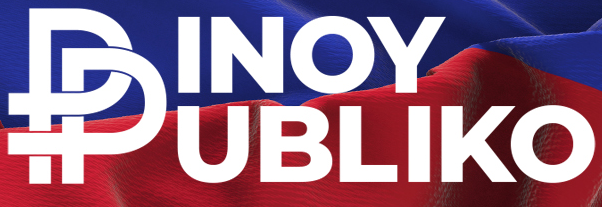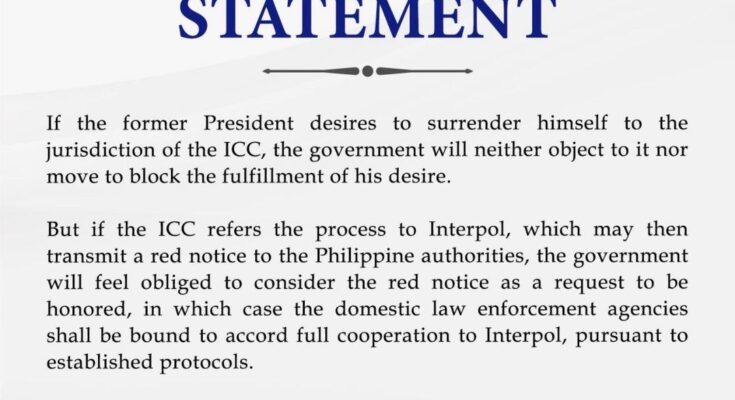The Philippine government will respect former president Rodrigo Duterte’s decision to surrender to the International Criminal Court (ICC), in the event that he is found guilty of alleged crimes against humanity committed during the implementation of his anti-drug campaign, Malacañang said Wednesday.
“If the former president desires to surrender himself to the jurisdiction of the ICC, the government will neither object to it nor move to block the fulfillment of his desire,” Executive Secretary Lucas Bersamin said in a statement.
Bersamin issued the statement after Duterte, during the House of Representatives quad committee hearing on Wednesday, challenged the ICC to begin its investigation into the drug war launched under his watch.
Duterte said he is also willing to “go to prison and rot there for all time,” if found guilty.
Bersamin said the government would cooperate with the ICC, in case the international tribunal opts to issue a “red notice” to Philippine authorities through the International Criminal Police Organization (Interpol).
“But if the ICC refers the process to the Interpol, which may then transmit a red notice to the Philippine authorities, the government will feel obliged to consider the red notice as a request to be honored, in which case the domestic law enforcement agencies shall be bound to accord full cooperation to the Interpol pursuant to established protocols,” he said.
A “red notice” is a request to law enforcement worldwide to locate and provisionally arrest a person pending extradition, surrender, or similar legal action.
However, a red notice is not an international arrest warrant and is restricted to law enforcement use only.
An individual placed on a red notice is wanted by a requesting member country or international tribunal.
The ICC is currently gathering evidence in its investigation into alleged crimes against humanity associated with Duterte’s war on drugs in the Philippines.
More than 6,200 drug suspects died in anti-narcotics operations during the Duterte administration from June 2016 to Nov. 2021, according to government data.
President Ferdinand R. Marcos Jr. has remained firm in his stance that the ICC has no jurisdiction over the Philippines, maintaining that the country has a functioning judiciary.
In February, Marcos said the ICC prosecutors could “produce as much evidence as they want but they could not act upon it in the Philippines.”
In March, Marcos also stressed that the Philippines is capable of conducting its own probe into Duterte’s anti-narcotics drive.
The Philippines formally cut ties with the ICC on March 17, 2019, a year after the country formally notified the United Nations of its withdrawal from the Rome Statute, which created the international court. (PNA)





